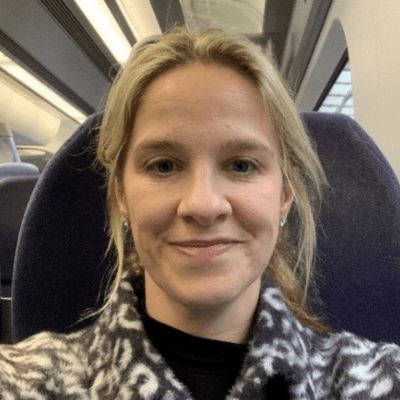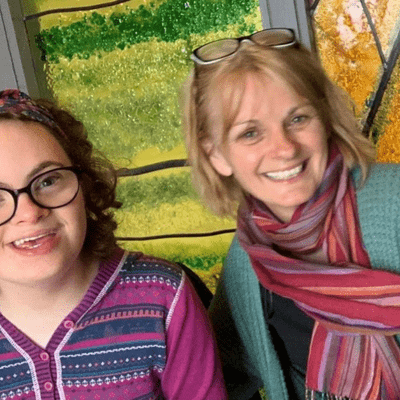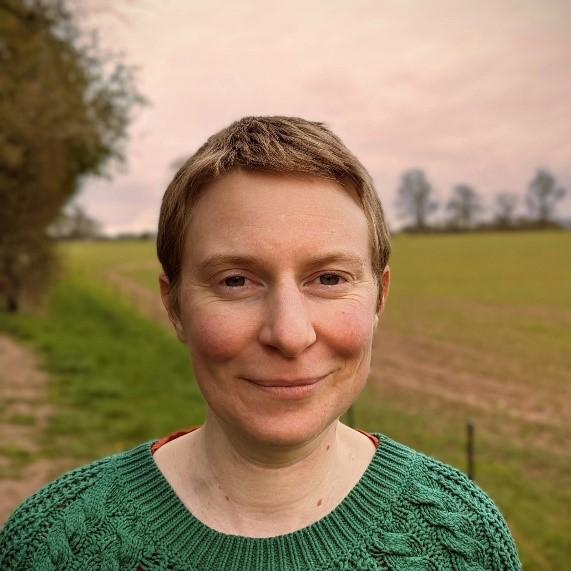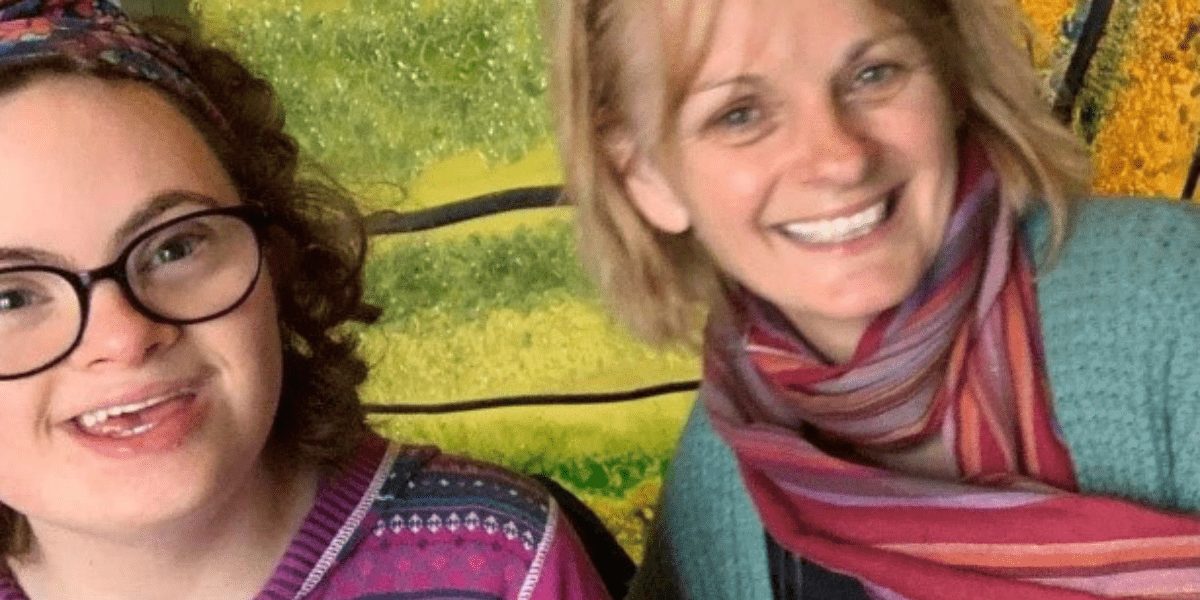Joanna Griffin, project lead, family carer and Assistant Professor, CEDAR, introduces a new systematic review of digital wellbeing interventions for family carers. In this article she explains what the review will do, why it’s important, how the work will be carried out and what difference it will make. Jo also introduces the project group which includes family carers and researchers.
What are we doing?
We are reviewing what research evidence there is available on online or virtual wellbeing interventions for family carers of people with a learning disability, autism/who are autistic, or both (family carers).
Why is this important?
Family carers can experience additional stress and have a higher chance of poorer mental health than other family carers. We need to support family carers to have good mental wellbeing, and this can sometimes be done through formal programmes or “interventions”. Interventions may include support or therapy groups, counselling or parenting programmes.
These interventions can help to improve family carers’ wellbeing and can also have knock-on effects improving life for their children.
It can be hard for some family carers to attend interventions in person due to their caring role, difficulties with travel or their child’s condition. Programmes that are offered digitally may help increase accessibility and inclusion.
How we are going about it?
Researchers will do a systematic review of the academic literature using formalised database searches. A systematic review uses a detailed and strict set of guidelines to search the international research literature on online and virtual mental wellbeing interventions for family carers.
We will check all of the research studies that we find and write a summary to work out:
- What interventions are out there
- If they helped to improve family carers’ mental health and wellbeing
- What family carers thought about the interventions
- What things helped the interventions to work best.
What difference will it make?
Ensuring that our findings help family carers, and those that support them, is at the heart of this project.
We hope that the findings will:
- Tell us what’s out there, what’s useful for family carers and the best way to do things based on the experiences of family carers
- Inform the next stage of our work by highlighting what gaps there are, what is important to do in interventions and make a difference to research in the future
In the future we will:
- Work with the family carers on the project to come up with ways to share our findings with family carers (e.g., newsletter articles, videos on social media, short summaries, factsheets).
- Share the findings with charities and organisations who work with family carers of people with intellectual and developmental disabilities.
- Share the findings with other researchers and professionals in a research paper and in articles in professional magazines.
When this project is finished we plan to apply for more funding to develop or adapt an online or virtual mental health and wellbeing intervention for family carers. This review project will ensure that our intervention is informed by the international evidence, and this gives us a better chance of successfully supporting family carers in the future.
For the final report from this project, please click here.
Who are we?
We have a Project Advisory Group which includes family carers and researchers. The lead researcher is also a family carer. You can meet the team below.
If you have any questions about the project please email [email protected].





Dr Magda Apanasionok (she/her) is a Research Fellow in CEDAR, University of Warwick working on the systematic review of digital wellbeing interventions for family carers. Magda completed her PhD in CEDAR in 2021 focused on teaching skills to children with developmental disabilities. Magda’s interests include education and mental health of people with developmental disabilities and their families. Magda is autistic and has an autistic daughter. She is passionate about co-production and inclusive research.

Dr Samantha Flynn is experienced in qualitative methods including Thematic Analysis, Framework Analysis, Content Analysis, and Grounded Theory. She also has expertise in systematic reviews and in Process Evaluations of Feasibility and Definitive trials, including Randomised Controlled Trials (RCTs) for complex interventions. As part of this work, she has experience in developing and refining Theory of Change and Logic Models.

Andreas is a clinical psychologist by training and behaviour analyst, working in CEDAR, University of Warwick. He has extensive experience in carrying out systematic reviews in the fields of intellectual disabilities, autism spectrum disorders, behaviours that challenge, general wellbeing and burnout. Andreas has published a number of peer-reviewed systematic reviews in scientific journals. He has a particular interest in employing systematic reviews and meta-analyses to inform interventions that make a difference to peoples’ lives.








